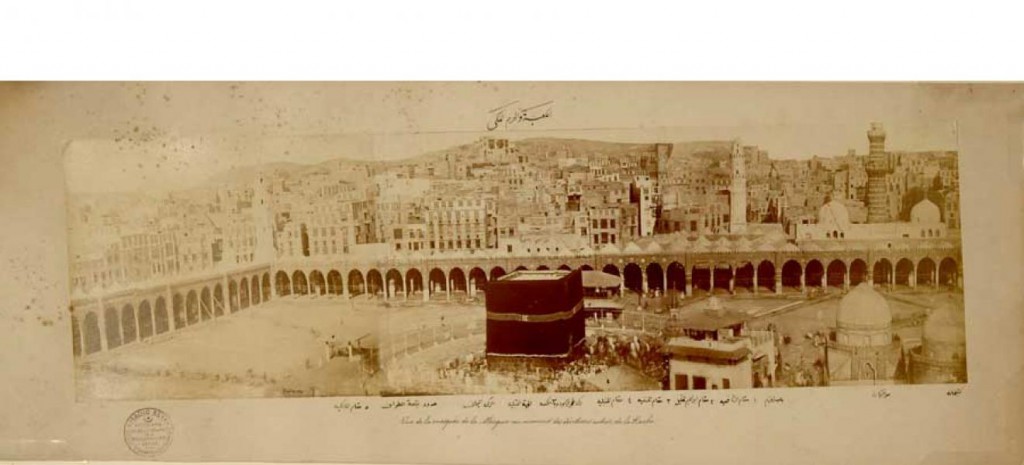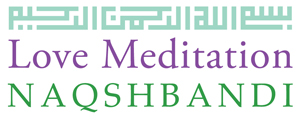Beware of Mawlid (Maulid) – act of Rejoicing of birth of Holy Prophet (SWS)
Now that we have your attention:
Beware of Mawlid (Maulid) – act of Praising Holy Prophet (SWS) will have you and the people around you talked about by Allah Almighty to his angels!
Narrated that Abu Sa’eed Al-Khudri RA said:
“Mu’awiyah, (may Allah be pleased with him,) said: ‘The Messenger of Allah [SWS] went out to a circle – meaning, of his Companions – and said: ‘What are you doing?’
They said: ‘We have come together to pray to Allah and praise Him for guiding us to His religion, and blessing us with you.’
He said: ‘I ask you, by Allah, is that the only reason?’
They said: ‘By Allah, we have not come together for any other reason.’ He said: ‘I am not asking you to swear to an oath because of any suspicion; rather Jibril came to me and told me that Allah, the Mighty and Sublime, is boasting of you to the angels.'”
Sunan Nasa’i
(Sunan an-Nasa’i 5426 – Eng:Vol. 6, Book 49, Hadith 5428 /
Book 49, Hadith 48)
Narrated Ursa RA(latter part of Hadith) :
Thuwaiba was a freed Slave girl of Abu Lahab whom he had manumitted, and then she suckled the Prophet.
When Abu Lahab died, one of his relatives saw him in a dream in a very bad state and asked him “what have you encountered ?”
Abu Lahab said, “I have not found any rest since I left you, except that I have been given water to drink in this (the space between his thumb and other fingers) and that is because of my manumitting Thuwaiba.”
[Bukhari: Volume 7, Book 62, (Book of Marriage kitab Al Nikah ) Hadith 38]
The Haters of Maulid (Mawlid) must ask themselves and ponder on this point here,
If the paternal uncle of Holy Prophet (SWS) who disbelieved, but emancipated a slave on the joy of the birth of Holy Prophet (SWS), (as did many lead by Hz Abdul Muttalib RA who did the Aqiqa on teh 7th day), find relief in Hell from Allah Almighty due to the signal he gave with his fingers to release Thuwaiba, his slave, What reward is there from Allah Almighty for people to openly encourage community, kinship and love of Rasul SWS?
It is wrong and an oppression of one’s soul who create doubt, make people hesitant in doing a good act, for people to further love celebrate and praise the Holy Prophet (SWS)?
Sunan Ibn Majah
Book 1 (Book of Sunnah), Hadith 208
Why does Rasul (SWS) say:
Narrated `Abdullah bin Hisham RA:
We were with the Prophet (ﷺ) and he was holding the hand of `Umar bin Al-Khattab. `Umar said to Him, “O Allah’s Messenger (ﷺ)! You are dearer to me than everything except my own self.”
The Prophet (ﷺ) said, “No, by Him in Whose Hand my soul is, (you will not have complete faith) till I am dearer to you than your own self.” Then `Umar said to him, “However, now, by Allah, you are dearer to me than my own self.” The Prophet (ﷺ) said, “Now, O `Umar, (now you are a believer).
[Sahih al-Bukari 6632 Book 83, Hadith 12]
The Prophet (ﷺ) said “None of you will have faith till he loves me more than his father, his children and all mankind.”
[Sahih al-Bukhari 15, Book 2, Hadith 8]
Hadrat Anas bin Malik (RA) narrates that Prophet (Peace & blessings be upon him) while mentioning his journey of Miraaj explains:
Jibreel (a.s) asked me to get off from Buraak at Bethlehem and told me to say the prayer there, after which he said: “Do you know where you have prayed (O Messenger of Allah)? You prayed at Bethlehem where Isa (a.s) “was born”.
Volume 1, Page No. 241, Hadith No. 448 (Sunnan an Nasai’i)
Imam al-Bayhaqi (rah) narrated this hadith with a different route too from another Sahabi called “Shaddad bin Aws (RA). After narrating it he said:Translation: This Sanad is “SAHIH” [al-Bayhaqi in Dalayl un Nubuwah (2/355-356)]
So the Mawlid and the places where Prophets (AS) are born are amongst Sha’ir (signs to be venerated) of Allah.
HOLY QURAN
Muslims rejoice on birth of Prophet (Salallaho Alaihi Wasalam) because Allah has ordered us to rejoice on his “Bounties and Mercies.”
قُلْ بِفَضْلِ اللَّهِ وَبِرَحْمَتِهِ فَبِذَلِكَ فَلْيَفْرَحُوا هُوَ خَيْرٌ مِمَّا يَجْمَعُونَ
Say: “In the bounty of God. And in His Mercy, in that let them rejoice”: that is better than the (wealth) they hoard (10:58)
Nobel Quran states:
وَمَا أَرْسَلْنَاكَ إِلَّا رَحْمَةً لِلْعَالَمِينَ
Translation: We have not sent you but as a “Mercy to the worlds”
(21:107)
We sent Moses with Our signs (and the command). “Bring out thy people from the depths of darkness into light, and teach them to remember the “Days of Allah (ِهَّاللِ امَّيَأِب.( “Verily in this there are Signs for such as are firmly patient and constant,- grateful and appreciative”. (14:5)
What are the Ayyam of Allah? Imam al-Bayhaqi narrates in his Shu’ab al Iman that Prophet (Peace be upon him) said:
The Days of Allah are his “Blessings and Signs” [Tafsir Ruh ul Ma’ani under 14:5]
Books about Maulid (Mawlid)
A book written on Mawlid by the renowned Muhaddis, Imam Abdur Rahman Bin Umar Auza’e (156 AH) is said to be the first book on Mawlid (Milad-un-Nabi), a contemporary of Imam al A’zam Abu Hanifa (d.150 A.H) and Imam Malik bin Anas.
The scholars of Islam have authored hundreds of books on the permissibility of Celebrating ‘Milad un Nabi’. Since then numerous scholars have been writing books on the permissibility of ‘Milad un Nabi’ such as ‘Husn ul Maqsad fi Ama’l ul Mawlid’ by Imam Jalaluddin Suyuti (d.911 A.H), ‘Al Mawrid ul Rawi fi Mawlid un Nabi‘ by Imam Ali bin Sultan Qari (d.1014 A.H), ‘Urf ul Ta’rif bil Mawlid ul Sharif’ by Imam Ibn Jawzi (d.579 A.H), ‘Mawlid un Nabi ]’ by Imam Ibn Kathir (d.774 A.H).
The Mufti of Mecca on Mawlid
According to the Mufti of Mecca Ahmad ibn Zayni Dahlan, in his book al-Sira al-nabawiyya wa al-athar al-muhammadiyya, page 51: “To celebrate the Mawlid and to remember the Prophet (s) is accepted by all the Ulama of the Muslims.”

The Historian of Mecca
Saiyyid Sulaimaan Nadvi, in his monumental work “Seerat Nabi“, Vol. 3, also says that Meelaad Shareef was celebrated in the 3rd or 4th century Hijra.
Al-Azraqi (3rd century) mentioned the mawlid in the sense of the house where the Prophet was born, and he said that salat in that house was declared by the scholars as desirable (mustahabb) for the reason of seeking special blessing (tabarruk). See Akhbar Mekka (2:160)
The mufassir al-Naqqash (266 AH- 351 AH) said in his Shifa’ al-gharam (1:199) that the birthplace of the Prophet (mawlid al-nabi) is a place where du`a on mondays is answered.
Ibn Jubayr (540AH–640AH) in his Kitab ar-Rihal (p. 114-115) mentions the Mawlid as a public commemoration taking place in Mecca in the House of the Prophet: “every Monday of the month of Rabi` al-awwal.”
The 7th-century historians Abul `Abbas al-`Azafi and his son Abul Qasim al-`Azafi wrote in their unpublished Kitab ad-durr al-munazzam:
“Pious pilgrims and prominent travellers testified that, on the day of the mawlid in Mecca, no activities are undertaken, and nothing is sold or bought, except by the people who are busy visiting his noble birthplace, and rush to it. On this day the Ka`ba is opened and visited.”
From the 7th-century, the account of ibn Battuta
The famous 8th-century historian Ibn Battuta relates in his Rihla, Vol. 1, p. 309 and 347,
that on every Friday, after the salah, and on the birthday of the Prophet, the door of Ka`ba is opened by the head of the Banu Shayba, the doorkeepers of the Ka`ba, and that on the Mawlid, the Shafi`i qadi (head judge) of Mecca, Najmuddin Muhammad Ibn al-Imam Muhyiddin al-Tabari, distributes food to the shurafa’ (descendants of the Prophet and to all the other people of Mecca.
From the 10th- century
The following description consolidates eyewitness accounts by three 10th-century authorities: the historian Ibn huhayra from his al-Jami` al-latif fi fasl Makka wa ahliha, p. 326; the hafiz Ibn Hajar al-Haytami from his Kitab al-Mawlid ash-Sharif al-Mu`azzam, and the historian al-Nahrawali from al-I`lam bi-a`lam Bayt Allah al-haram, p. 205.
Each year on the 12th of Rabi` al-Awwal, after the salat al-Maghrib, the four qadis of Mecca (representing the Four Schools) and large groups of people including the fuqaha’ (scholars) and fudala’ (notables) of Mecca, shaykhs, zawiya teachers and their students, ru’asa’ (magistrates), and muta`ammamin (scholars) leave the mosque and set out collectively for a visit to the birthplace of the Prophet, shouting out dhikr and tahlil (LA ILAHA ILLALLAH).
The houses on the route are illuminated with numerous lanterns and large candles, and a great many people are out and about. They all wear special clothes and they take their children with them. Having reachethe birthplace, inside a special sermon for the occasion of the birthday of the Prophet is delivered, mentioning the miracles (karamat) that took place on that occasion. Hereafter the du`a’ for the Sultan (i.e. the Caliph), the Emir of Mecca, and the Shafi`i qadi is performed and all pray humbly. Shortly before the salat al-`Isha’, the whole party returns from the birthplace of the Prophet to the Great Mosque, which is almost overcrowded, and all sit down in rows at the foot of the Maqam Ibrahim.
In the mosque, a preacher first mentions the tahmid (AL HAMDULILLAH) and the tahlil, and once again the du`a’ for the Sultan, the Emir, and the Shafi`i qadi is performed. After this the call for the Salat al-`Isha’ is made. After the salat, the crowd breaks up. A similar description is given by al-Diyarbakri (d. 960) in his Ta’rikh al-Khamis.
May Allah Almighty grant everyone better understanding and encourage the Ummah of Muhammad (SWS) to come together for the sake of the Holy Prophet (SWS) & Sahabi-Kiram, His Inheritors and lovers of Holy Prophet (SWS).
Bir hurmati Habib bir hurmati Anzalta alayhi Siri Surat al-Fatiha.

